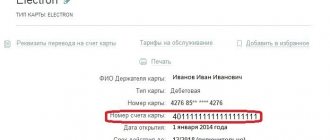Cohabitation of citizens is often a forced measure and serves as fertile ground for the emergence of various kinds of conflicts.
The presence of such disputes does not relieve residents from the burden of bearing joint expenses for the maintenance of residential premises and does not give them the right to evade them. The problem of separate payment for housing and communal services can be solved using the section of the personal account of the residential premises. More details about the procedure and methods for dividing a personal account will be discussed in this article.
The concept of “Section of a personal account in a privatized apartment”
The term “separation of accounts” does not exist in the current legislation of Russia. However, this phrase has firmly entered into circulation to denote the process of allocating a share in payment for housing and communal services to each owner of a share of real estate.
To open a personal account, the following information is required:
- living space area;
- the number of persons registered in it.
The owners enter into agreements for the provision of utilities and maintenance of the local area. At the same time, they have equal rights to use the premises and obligations to pay the receipt.
In accordance with Article 249 of the Civil Code of the Russian Federation, each participant in shared ownership is obliged to pay payments on common property in proportion to his share, as well as participate in the costs of its maintenance and preservation.
Based on clause 5 of part 2 of Article 153 of the Housing Code of the Russian Federation, the obligation to pay for residential premises and utilities arises from the owner of the premises from the moment the ownership of such premises arises.
Other owners bear joint liability for failure to fulfill obligations to pay housing and utility bills until the procedure for incurring these costs is changed based on an agreement of the parties or a court decision that has entered into legal force.
It is not always possible to agree peacefully on each of them paying equal amounts on a receipt, which is why there is a need to create a separate payment document for each owner.
Division is possible only if the following conditions are met:
- a separate account can be issued only for the owner of the share;
- registration without owning a share in the living space does not give the right to have a personal account;
- division is possible only in privatized housing.
According to the new housing legislation of the Russian Federation, the division of accounts in a municipal apartment is not provided.
The formation of a separate payment is made only on the basis of the Certificate of Ownership. It is also unacceptable to separate personal accounts if the apartment is one-room.
Legal features of ownership of shares after privatization
The problem of fair distribution of utility payments arises when a family has two or more adult owners who are capable and able to work. In such a situation, the claims of the main payer of housing and communal services are completely justified.
It is allowed to allocate utility bills for individual citizens into a separate account only if the share is determined and formalized legally. The payer of the receipt will be the owner of the share.
There are certain restrictions when dividing accounts in an apartment registered as joint ownership. The procedure can be completed only after the actual allocation of a share in the real estate and receipt of a certificate from Rosreestr.
May be useful: How to privatize an apartment: step-by-step algorithm of actions.
When intending to split a personal account in an apartment, make sure that the following circumstances are met:
- The account is issued only to the owner. Residents registered in the apartment cannot act as official payers for housing and communal services.
- Accounts are allocated after privatization; division is not possible in municipal housing.
- The basis for the division of accounts will be the received certificate confirming the fact of ownership of part of the apartment by a specific owner.
- It is impossible to separate personal accounts in a one-room apartment.
- The division occurs regardless of the degree of relationship between the co-owners of the object.
The easiest way is to achieve the procedure with the general consent of all co-owners, since the division of personal accounts in a privatized apartment without a trial is possible only with the good will of all participants in the procedure. If anyone disagrees, further litigation will be required. The basis for division in the absence of agreement will be a court decision.
How to divide bills in a privatized apartment?
There are two options for the accounts section:
- Draw up an agreement with all owners of residential premises and submit an application to the management company (homeowners' association) for the allocation of accounts and execution of an agreement for the provision of housing and communal services and maintenance of the local area with each owner separately;
- Filing a claim in court - in the absence of agreement between the owners or in the event of the management company refusing to divide the accounts.
Each of these methods has its own features and characteristics.
Do you need the consent of other owners?
A division is possible by concluding an agreement between the owners. However, in most cases, the one who refuses to pay will not want to split the bill, so he will have to go to court. Of course, a peaceful solution to the issue is easier and faster. Therefore, first of all, the owners should try to come to an agreement among themselves.
You can not divide the bills at all, but simply conclude an agreement at the notary’s office on who will pay and how much. This will help save time and become the basis for holding the defaulter accountable.
Where to contact?
The simplest option is to submit an application to the management company (homeowners' association) to which the residential premises belong.
A more complex and costly method would be to file a claim with the district (city) court at the location of the real estate. However, this option will remain the only one if there is a dispute between the owners, one of the co-owners evades participation in sharing the burden of maintenance costs, or if the management company refuses.
Actions in case of failure
Utility providers do not always actively agree to split the accounts of apartments that are in shared ownership. After all, if housing and communal services are not paid for, it is easier for them to deal with one owner than with several at once. Therefore, sometimes citizens can be refused by utility companies for a far-fetched reason.
Also, a 100% refusal will be received if, when submitting an application to the management company, consent was not received from all owners who own shares in this residential premises.
The only correct way out in such a situation is to go to court. It is this authority that is vested with the right to resolve issues related to the division of drugs, and its decision will be binding.
Preparing a lawsuit
An application to the court for the division of utility bills must be made in writing. You can draw up a document either yourself or with the help of a qualified lawyer. The second option is the most acceptable, since a specialist will not only write an application for you, he will be able to get to the bottom of the problem and suggest how to solve it as quickly as possible and without unnecessary problems.
In any case, the claim must contain a request to split the personal account. When compiling it, you can rely on the sample attached to the article.
In addition, the following documents must be attached to the statement of claim:
- Copies of the passports of the applicants or one of them, if the claim is filed on behalf of one owner.
- A document confirming ownership of a share in a privatized apartment.
- Cadastral plan and passport of the apartment.
- Technical data sheet and floor plan.
- A copy of the personal account is required to confirm the presence/absence of debt on utility bills.
- An extract from the house register about the number of registered persons in a given living space.
- Receipt for payment of state duty.
All documents are submitted both in originals and copies.
Other papers may be required, such as a divorce certificate. Each situation is individual, so the final list of required documents is always determined based on the circumstances of the case.
Applying to the management company - step-by-step instructions
If all property owners agree to determine their shares for utility bills, then they should submit an application to the management company.
Step 1 . The owners will have to enter into an agreement among themselves, in which they will indicate the share of reimbursement of expenses for payment of utilities and similar services. Such an agreement can be concluded in simple written form and does not require mandatory notarization. (clause 1 of article 160, subclause 2 of clause 1 of article 161 of the Civil Code of the Russian Federation, clause 12 of the Resolution of the Supreme Court of the Russian Federation dated July 2, 2009 No. 14).
Step 2. With this agreement, the co-owners apply to the management company (the executive body of the homeowners’ association) and organizations that provide resources and sign an application for the allocation of an individual personal account to each.
The following documents must be submitted along with the application:
- an extract from the unified register of rights to real estate with a deadline for issue no later than a month before the date of application (for real estate privatized after July 2021) or a certificate of ownership;
- cadastral passport for residential premises;
- civil passport of each owner of the property.
Legal basis: Art. 249 Civil Code of the Russian Federation, Part 5, 6.1, 7, 7.1 Art. 155 Housing Code of the Russian Federation, clause 2 of the Moscow Government Resolution No. 111-PP dated March 1, 2005, clause 27 of the Supreme Court of Russia Resolution No. 22 of June 27, 2017).
The application can be submitted by contacting the multifunctional center.
Step 3. If approved, an agreement for the provision of utility services is drawn up with each of the owners separately, after which payment is distributed to each owner in proportion to his share.
From this moment on, each share owner will receive a separate payment document and will be responsible for paying his part of the payments.
Required documents
Before starting a division, you must obtain consent from all persons who own shares in the apartment. Then you need to collect a package of papers, which includes:
- Statement from all participants regarding the division of the account.
- Identification documents (usually passports).
- Title documents for real estate, which state who owns what share in the apartment.
- Extract from the house register.
- Written consent of all other residents.
- Floor plan of the apartment from the BTI indicating the areas of all rooms.
- A copy of the financial personal account confirming the absence of debt on utility bills.
- A certificate certifying that the applicant has independent income.
Step-by-step instructions when filing an application with the court
An application from the owners to the management company (HOA) is not an indisputable basis for dividing the personal account. For example, a refusal is possible if there is a large debt. In this situation, the issue will have to be resolved through the court.
Step 1 . The claim is filed on the basis of the norm of Article 69 of the Housing Code of the Russian Federation, which proclaims the principle of equal distribution of costs for maintaining premises among residents.
The defendants in the claim are: the management company (homeowners' association), resource-providing organizations.
As third parties, in accordance with Art. 43 of the Code of Civil Procedure of the Russian Federation, other owners should be involved. The statement of claim itself is drawn up according to the rules specified in Articles 131-132 of the Code of Civil Procedure of the Russian Federation.
The subject of the claim should be:
- determine the procedure and amount of participation in payment for housing and utilities;
- divide the personal utility bill between the owners;
- oblige the issuance of separate payment documents.
The claim is classified as non-property, therefore the price of the claim is not determined. The state duty, according to the provisions of Article 333.19 of the Tax Code of the Russian Federation, is 300 rubles.
You can also draw up a statement of claim yourself by finding a suitable sample in the public domain on the Internet.
When considering the case, the court takes into account the following circumstances:
- area of the property;
- the size of the owner's share in the common property;
- other important information.
Step 2 . At the end of the proceedings, the court issues a court ruling, which establishes the payment procedure and the share of expenses of each owner in the total amount of utility bills.
Step 3 . After the court decision enters into legal force, the management company (homeowners association, settlement center) calculates utilities and charges payments in accordance with individual accounts.
Trial
After filing a statement of claim, a trial date is set. The parties must be notified of this, as they must appear to testify and, if necessary, provide the necessary evidence. As a rule, a summons is sent to all participants in the case.
If a request has been made for the allocation of shares in a personal account, the court will consider the case and make a decision, even if other apartment owners do not agree to the division of the personal account. In this case, the judge will be guided by the requirements of housing and civil legislation.
Current regulations oblige each property owner to be responsible for the maintenance of his share and payment of mandatory payments (including utilities, fees for major repairs, taxes, etc.).
After examining all the evidence presented by the parties during the trial and interviewing the participants in the case, the court will make an appropriate decision. At the same time, he will not split the account, but will oblige the management company and other resource supply organizations to perform the necessary actions for this.
Please note that the period for consideration of such a claim is one month, but if the judge is busy or additional documents need to be submitted, it may be extended.
Is it possible to split bills in a municipal apartment?
From a legal point of view, the division of accounts is the conclusion of new rental agreements.
It is almost impossible to divide a personal account if people who belong to the same family live in the apartment.
If this is not the case, then the court may satisfy the claim requiring the conclusion of new lease agreements, relying on paragraph 4 of Article 69 of the Housing Code.
In accordance with Part 2 of Art. 69 of the Housing Code of the Russian Federation, family members of the tenant of a residential premises under a social tenancy agreement have equal rights and obligations with the tenant. Members of the family of the tenant of a residential premises under a social tenancy agreement who are capable and limited in their legal capacity by the court bear joint and several liability with the tenant for the obligations arising from the social tenancy agreement.
Joint and several liability does not provide for the division of costs for utilities on the basis of a concluded agreement.
If it is not possible to reach an agreement on the procedure for paying for residential premises and utilities between citizens living in residential premises under social tenancy agreements, then the share of payments of each citizen for residential premises and heating is determined in court (Part 4 of Article 73 of the Law of the City). Moscow dated January 27, 2010 No. 2 “Fundamentals of the housing policy of the city of Moscow”).
In accordance with paragraph 30 of the Resolution of the Plenum of the Supreme Court of the Russian Federation dated July 2, 2009 No. 14 “On some issues that arose in judicial practice when applying the Housing Code of the Russian Federation,” a former family member of the tenant has the right to demand that the landlord and the tenant conclude a separate agreement with him, determining the procedure and amount of his participation in the costs of paying fees for renting residential premises and utilities. Moreover, the proposal to conclude such an agreement may come from the employer.
Disputes arising in connection with the refusal of the lessor (tenant) to enter into such an agreement or in connection with the failure to reach an agreement between the parties on its contents are resolved by the court.
Courts, when considering such disputes, have the right, in relation to the provisions of parts 5 and 6 of Article 155 of the Housing Code of the Russian Federation, Article 156 of the Housing Code of the Russian Federation and Article 249 of the Civil Code of the Russian Federation, to determine the procedure and amount of participation of a former family member of the tenant in the costs of paying for living quarters and utilities, based on his share of the total area of the residential premises, with the imposition on the landlord of the obligation to conclude an appropriate agreement with the former member of the tenant’s family and issue him a separate payment document for payment for the residential premises (Determination of the Moscow City Court dated March 2, 2012 in case No. 33-6868).
Judicial separation
If a peaceful agreement cannot be reached, a lawsuit will need to be filed.
How is the division of personal accounts between apartment owners done through the court? When an agreement is not reached, it is possible to allocate a share and divide the accounts only through the court. As a rule, then another lawsuit is filed in parallel in order to determine the procedure for using the premises, which is in shared ownership.
The following package of documentation is submitted to the court along with the application:
- photocopy of an identity document; technical passport of the apartment;
- certificate from the MFC about the composition of the family;
- copy of the invoice.
Typically, the court sets the size of the share of the personal account in proportion to the shares of ownership.
The judge makes a decision regardless of the consent of other property owners, since all owners bear the same responsibility for paying utility bills. At the same time, the procedure for using the apartment between the owners can be determined.
That is, the court determines the plaintiff’s room. And also how the common areas will be used: hallway, bathroom, kitchen.
It should be remembered that even the court will not force you to split the personal account if the apartment:
- official;
- has a sole owner legally;
- has a lien or other encumbrances.
When the case is considered, and the judge decides to allocate a share from the personal account, the plaintiff must contact the Criminal Code with this document.
This organization, based on the judge’s decision, will not require consent from other owners and will forcefully carry out this procedure.
How to privatize an apartment with separate personal accounts?
The procedure for privatization of housing in Russia is reflected in Law No. 1541-1 of July 4, 1991 “On the privatization of housing stock in the Russian Federation.”
Article 2 of this law establishes that citizens living in housing under a social tenancy agreement have the right to purchase housing as common property or as the property of one person, including a minor.
Every Russian citizen has the right to take part in free privatization once, provided he has permanent registration in a municipal apartment.
The decision to privatize must be unanimous. One or more persons have the right to refuse to participate in the transaction (but must give notarized consent to privatization) in favor of the future owners. Residents who refuse have the right to permanent residence in a privatized apartment.
The legislation does not provide for the registration of ownership of part of the housing, so the apartment is privatized:
- only entirely in shared ownership;
- or into the property of one of the registered persons, subject to the refusal of the remaining persons.
To acquire ownership rights to a part of an apartment, a mandatory condition is the allocation of this part in the form of a separate share in kind.
Since the law prohibits the privatization of a part of a common object, the possibility of acquiring ownership rights to a share appears when it becomes a separate object.
The transfer of ownership of rooms in a communal apartment in which residents have separate personal accounts is called partial privatization. When rooms in a communal apartment are privatized, the share of ownership will correspond to the size of the occupied room.
There is another, more complex option for privatizing part of an apartment - drawing up a separate social tenancy agreement for residential premises. If several families living in a communal apartment are on bad terms with each other, then moving away may be a way out of this situation.
If it is not possible to exchange an apartment, then residents can determine the procedure for using the residential premises voluntarily or in court. After which you should contact the owner of the real estate to conclude a separate social rental agreement and privatize the allocated room.
Causes
The underlying reason for wanting to split accounts is financial. Some owners are irresponsible when it comes to paying for housing and communal services, and believe that the one in whose name the receipts come should pay. But this is not true.
All owners, as well as other persons registered in a privatized apartment, are required to contribute funds in equal shares for utility costs.
Often such disputes arise between ex-spouses. One person stops paying, the second, unable to cope, accumulates debts. If the first does not yet have an official source of income, but the second does, then again the bailiffs will collect the debt from him.
It may happen that one of the two owners pays only half the amount, although he has children who are registered at this address. Since most utilities are based on the number of people, it is fair for a parent to pay for their children rather than half the amount. There are many similar disputes, but it all comes down to one thing: someone pays and someone doesn’t.
Responsibility for late payment of housing and communal services
The Housing Code requires the owner or tenant of housing to pay for housing and communal services every month by the 10th. If payment is late by more than a month, for each day of delay the tenant is charged a penalty in the amount of 1/300 of the Central Bank refinancing rate.
Note!
If the debt accumulates for more than 90 days, the penalty will be calculated at 1/130 of the CBR rate per day. With such a long-term non-receipt of payments, the enterprise provider of services and resources has the right to limit the defaulter’s access to them.
For residents of a municipal apartment, a possible sanction for late or incomplete payment of accommodation and utilities is forced termination of the tenancy agreement. According to Article 91.10 of the Housing Code of the Russian Federation, the landlord has the right to go to court to terminate the contract and evict an irresponsible tenant if he:
- accumulates debt in the amount of more than three average monthly payments;
- will allow interruptions in payments more than six times a year.










